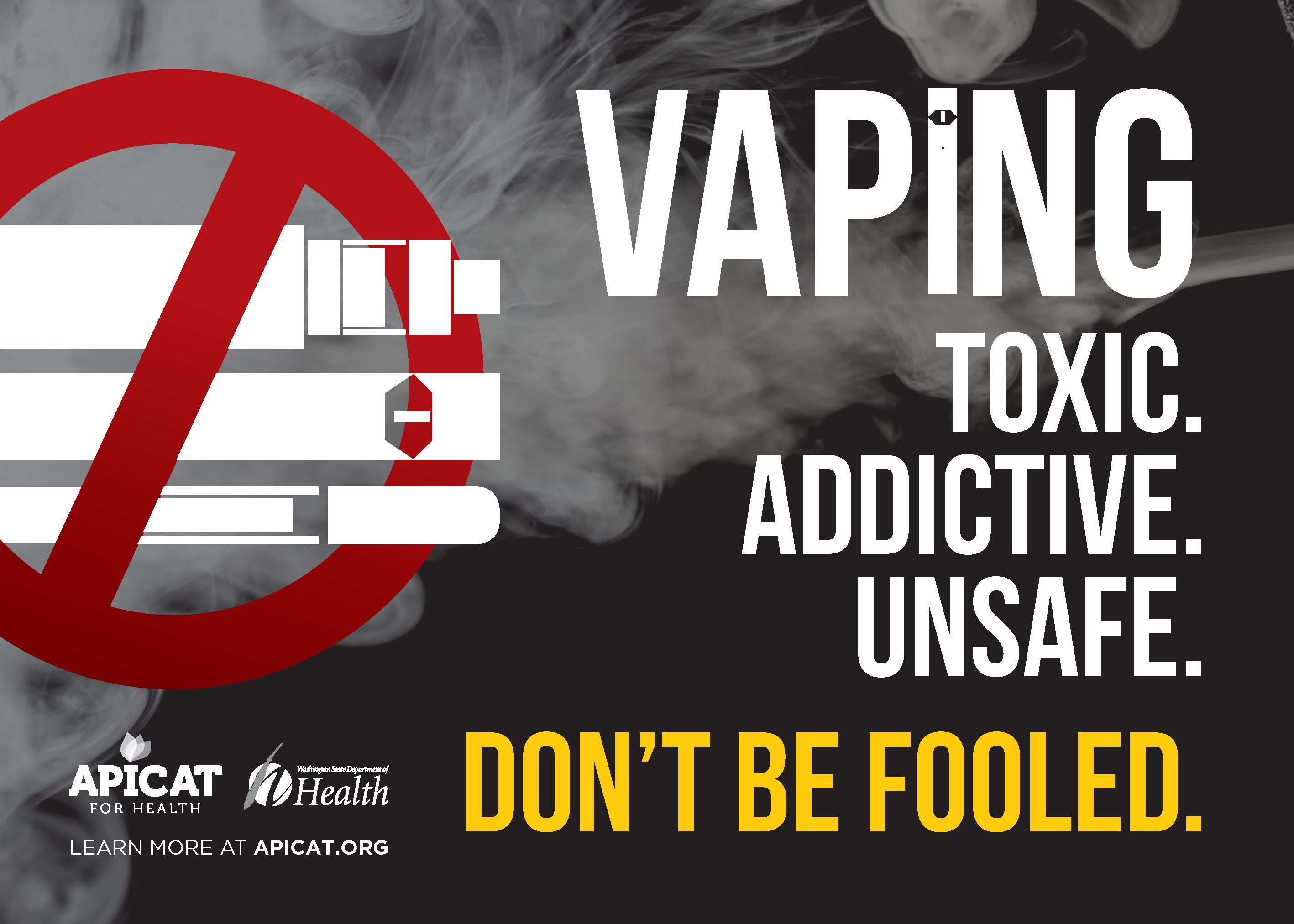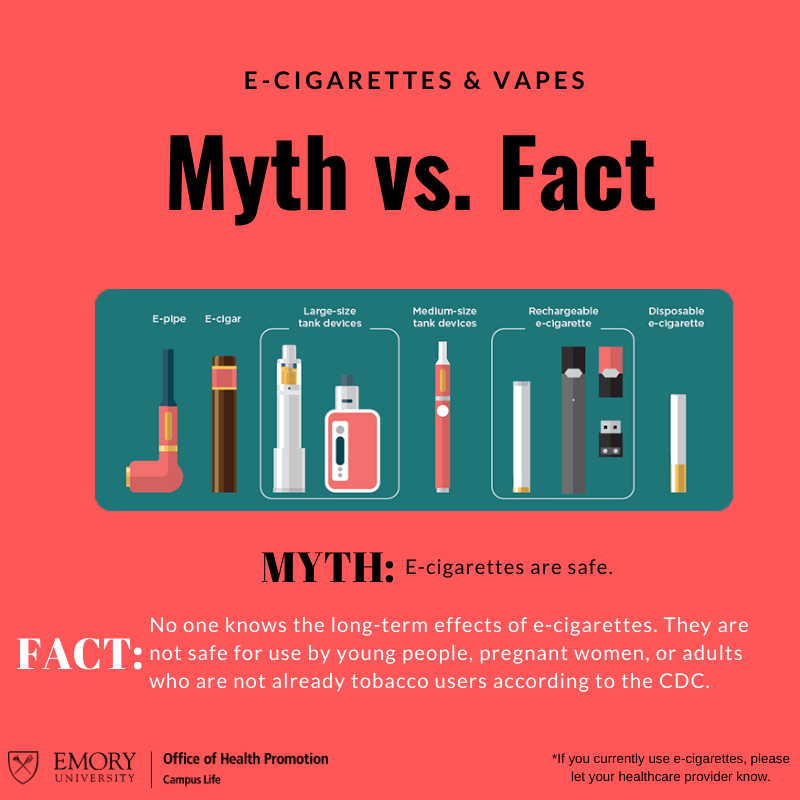

Vaping: It’s not a Good Alternative After All
Arbre’ya Lewis | January 22, 2020 | Emory University, Office of Health Promotion
When I sit on an airplane and the no smoking light shines bright in my face – it’s hard to imagine a day in time where smoking on planes was even allowed. If you’ve ever watched Mad Men or Sex in the City, you can see how not too long ago, the media reflected how universal it was to smoke wherever, whenever.
That’s a vastly different reality from the world we live in now. It’s not often today that you will walk into a restaurant and smell the distinct odor of cigarette smoke. Generally, most places are non-smoking areas, forcing tobacco users outside.
The laws around smoking bans were driven by the discovery that smoking causes negative health outcomes. In fact, tobacco use is the single largest preventable cause of death and disease in the United States according to the CDC.
When I was a bight eyed, impressionable, elementary school student I was taught the perils of first-hand and second-hand cigarette smoke. Since we as a society have learned more about the negative effects of smoking on health, there has been a steep decrease in cigarette smoking among adolescents and teens.
Within the past few months, the government set a few policies that will surely make it less desirable for you to go to the nearest gas station and buy an e-cigarette. The House and Senate have passed a law that bans the sale of tobacco and e-cigarettes to anyone under 21. In Georgia specifically, e-cigarette regulations are mostly limited to that federal goal of keeping the product out of the hands of young people. You can learn more about the specific statewide regulations here. Finally, there is a nation-wide flavor ban that doesn’t allow companies to produce those tasty flavored individual vaping cartridges that was a driver in underage vaping use. Now, you can expect individual vaping cartridges to only be available in tobacco and menthol flavors – and those are sure not to taste as yummy.
We don’t yet know all the effects of vaping. We do know however that the CDC reported that it is linked to a lung disease which leads us to guide you to avoid use of vaping products under the assumption that they are not safe. The CDC recommends for those who do not currently use tobacco products should not start using e-cigarette or vaping products. Also, the CDC recommends that youths, young people (including college students, and those who are pregnant) should never vape. These recommendations apply to the use of nicotine-based e-cigarettes and THC-containing vaping products.

If you currently use e-cigarettes or vape pens, we suggest you follow these tips and tricks to stop to avoid any possible negative health outcomes related to the habit.
- Have accountability partners
- Build a team of supportive people to hold yourself accountable. If your friends, family, and doctors know that you are trying to quit, it can be helpful if they ensure that you are sticking to your plans to put down the pen.
- Try a nicotine replacement therapy
- Juul and other e-cigarette products contain the addictive chemical nicotine. Some vape cartridges can even contain as much nicotine as a pack of 20 cigarettes. Using one of the tried and true therapies like the patch or gum could really help.
- Use one of these free resources to help you quit
- There are plenty of technology tools that can help you on your quest to be vape-free. From text message programs, apps, and quitlines – know that you are not alone in kicking this habit to the curb.
*Remember: Emory University is a tobacco-free campus – that includes vape pens.
For more information about the federal regulations of vaping, visit the FDA website.
If you are having a hard time quitting and would like to seek help, visit OHP or Emory Student Health to learn more about quitting.